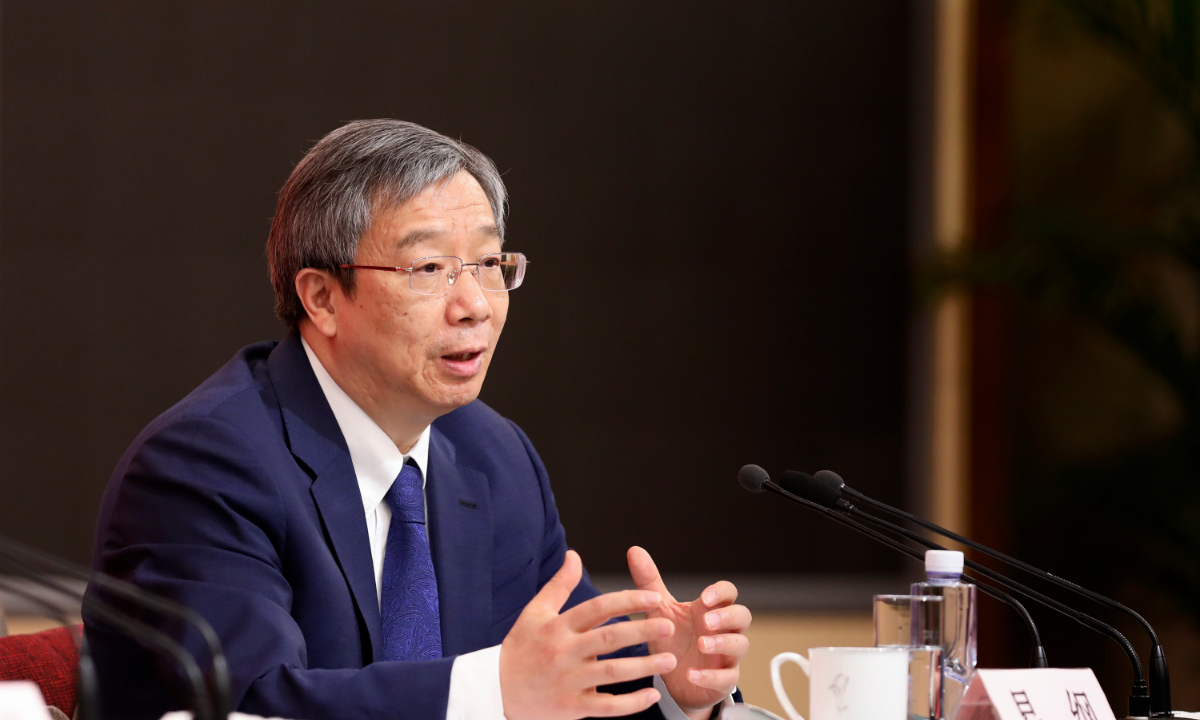
Photo: CFP
Price stability is priority for China's monetary policy, central bank governor Yi Gang said in a video speech at the Boao Forum for Asia (BFA) annual conference 2022, adding that agricultural output and production and import of energy such as coal, oil and gas are the focus of financial services.
Yi, governor of the People's Bank of China (PBC), the central bank, delivered a speech via video link at the BFA 2022 on Friday at a session focusing on global inflation, interest rate hikes and economic stability.
The BFA 2022 is being held as the global economy faces an uphill battle in its recovery from the COVID pandemic, global supply chain woes, and the Russia-Ukraine conflict, which have all contributed to rising grain and fuel prices, combined with a wave of inflation that has hit many countries, while the withdrawal of supportive policies by some developed economies has caused spillover effects.
Yi noted that China's grain production and energy supply are crucial for price stability in 2022, while external shocks have affected the country's financial market and the domestic COVID-19 situation places downward pressure on growth.
Agricultural output and production and import of energy such as coal, oil and gas are the focus of financial services , Yi said, as long as grain production and energy supplies remain stable, inflation will be kept within a reasonable range.
China's monetary policy is accommodative and is in a comfortable range, Yi said, noting that the PBC stands ready to support small and medium-sized enterprises (SMEs) using more instruments if needed.
China's consumer price index stood at 1.1 percent in the first quarter while the producer price index reached 8.7 percent. In contrast, US inflation is at its highest level in 40 years and the euro zone posted record high CPI growth of 7.5 percent in March.
Yi said accommodative monetary policy, which includes inclusive lending to SMEs and support to vulnerable groups hit by COVID, has helped to ensure a sound economic start for China in the first quarter. The Chinese economy grew by 4.8 percent in the January-March quarter, a slight improvement from the last quarter of 2021.
After a Friday meeting analyzing the current economic and financial situation, the PBC said in a statement that it will provide dedicated support to agricultural production and the smooth production and transportation of vital energy sources including coal, crude and natural gas.
On Monday, the PBC also announced 23 policy measures to support the real economy.
As of the end of March, the balance of inclusive lending to mid-, small- and micro-businesses grew 25 percent year-on-year to 21 trillion yuan ($3.25 trillion).
To shore up the domestic economy under the impact of COVID, the PBC in March said it would contribute over 1 trillion yuan to the central government in additional budget support, the equivalent of 1 percent of China's GDP.
During a virtual meeting of G20 finance ministers and central bank governors on Wednesday, Yi said China will flexibly use a variety of monetary policy tools to increase support for the real economy.
The IMF on Tuesday slashed its forecast for global economic growth for 2022 by 0.8 percentage points from its January forecast to 3.6 percent, citing shock waves from the Russia-Ukraine conflict.
The IMF also downgraded its growth forecast for China this year to 4.4 percent.
Global Times
